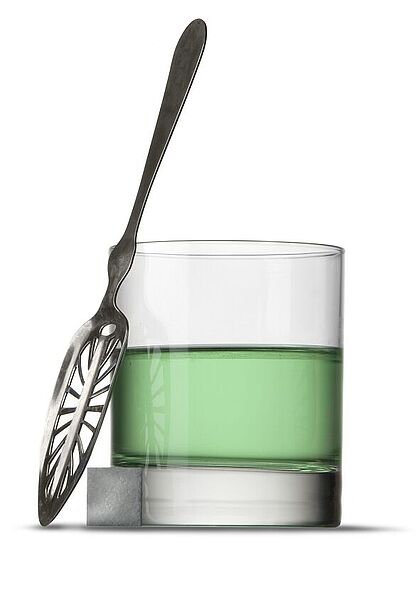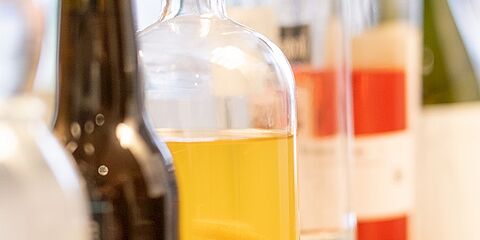Analysis of thujone in absinthe: WESSLING authorised by INAO
The alcohol laboratory of WESSLING France has been authorised by the French National Institute of Origin and Quality (INAO) to carry out analyses of alpha and beta thujones in absinthe. This family business is therefore now one of the few French laboratories permitted to perform such regulatory analyses.

Absinthe producers are required to comply with the specifications and be certified in terms of quality and origin. The specifications prescribe thujone analysis as part of official testing. In Europe, the total thujone concentration must be no more than 35 mg/l.
Numerous tests confirm the technical expertise of WESSLING
To support producers of absinthe and other spirit drinks, WESSLING France has participated in multiple tests, both internal and with an official laboratory recognised for its expertise in fraud detection. Based on these tests, the INAO has recognised the complete technical competence of WESSLING and entrusted the company with the analysis of alpha and beta thujone. The analyses are carried out by GC-FID and then confirmed by GC-MS at the alcohol laboratory near Paris (Essonne).
Thujone and absinthe: brief explanation
Thujone is an active substance found in wormwood. It has two natural stereoisomeric forms, α- and β-thujone. It is this molecule that made absinthe famous, because it is said to have caused the side effects that led to the temporary ban on the beverage in the 20th century. In Europe, the total concentration of the two isomers in spirit drinks such as absinthe is regulated. It is limited to 35 mg/l.
Your contact
- Nathalie Dozinel
- +33 1 64 47 14 76
- nathalie.dozinel@wessling.fr




